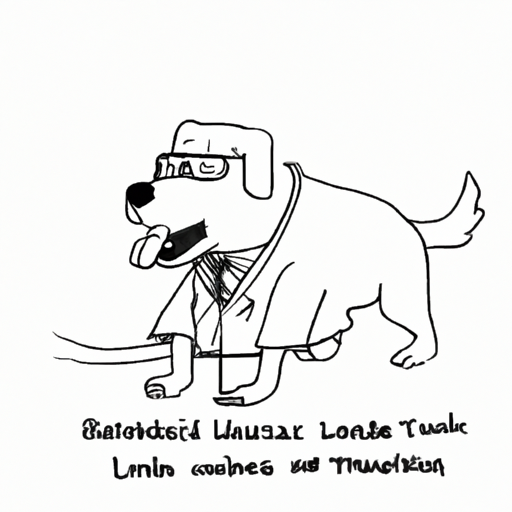Understanding Your Dog’s Digestive System
Your dog’s digestive system is a fascinating and complex system that turns food into energy. Just like your own body, your pooch’s digestive process begins the moment food enters the mouth. Saliva starts to break down food particles while teeth grind it into smaller bits. These morsels are then swallowed, traveling down the esophagus to the stomach.
Here, powerful stomach acids break down the food even more, turning it into a liquidy substance known as chyme. This chyme then enters the small intestine, where nutrients are absorbed into the body. Any remaining waste then travels to the large intestine, ready to be excreted.
In terms of timing, a dog’s digestive system is surprisingly efficient. Typically, a dog can digest their food in around 4 to 5 hours, but it can take as long as 10 to 24 hours to fully eliminate it from their system.
Factors Affecting Digestion Time
Several factors can influence how long it takes for dogs to digest food:
- Age: Younger dogs and puppies generally have a faster metabolism, which means they digest food quicker than older dogs.
- Diet: High-quality dog food is typically easier for dogs to digest than cheaper, low-quality alternatives.
- Health Status: Dogs with medical conditions, like digestive disorders, may take longer to digest food.
- Activity Level: Active dogs often digest food quicker than their less active counterparts.
The Importance of a Good Diet
Quality food is key to optimal digestion. If you’re feeding your furry friend a diet rich in lean proteins, healthy fats, and digestible carbohydrates, they should have no problem processing their meals. Here’s a basic guideline of what a balanced dog diet should look like:
- 50% lean protein (such as chicken, turkey, fish)
- 25% vegetables
- 25% grains (like rice, oatmeal)
Remember, every dog is unique and might need a different diet based on their age, size, breed, and health status.
Recognizing Digestive Issues in Dogs
As a caregiver, it’s crucial for you to recognize when your dog might be having digestive issues. Signs of digestive problems can include:
- Loss of appetite
- Vomiting or diarrhea
- Abdominal pain or bloating
- Weight loss
- Lethargy
Should you notice any of these symptoms, please consult with a vet immediately.
Frequently Asked Questions (FAQs)
1. How often should I feed my dog?
Most adult dogs should be fed once or twice a day. Puppies usually require three to four feedings a day.
2. What if my dog is not digesting food properly?
If your dog is showing signs of digestive issues (like vomiting, diarrhea, or loss of appetite), you should consult with a vet as soon as possible.
3. Is it okay to switch my dog’s food regularly?
It’s best to stick to a consistent diet for your dog. If you need to change their food, do it gradually over a week to avoid upsetting their stomach.
4. Can I feed my dog human food?
While some human foods are safe for dogs, others can be toxic. Always consult with a vet before introducing new foods into your dog’s diet.
Remember, as a dog owner, you play a vital role in your pet’s health and well-being. By understanding their digestion process and dietary needs, you can ensure they’re getting the necessary nutrients to live a healthy, happy life.



